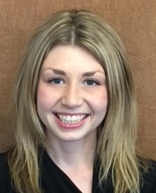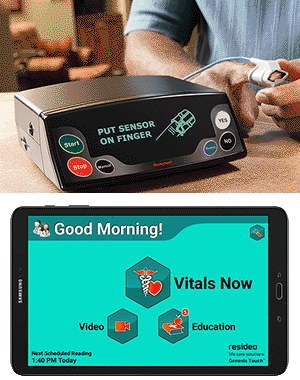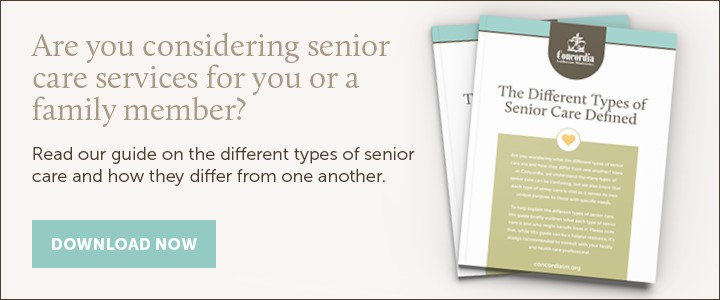Heart Failure: How to Recognize, Treat and Manage the Disease

February is American Heart Month and provides all of us the opportunity to raise awareness about various heart diseases and how they can be managed once diagnosed. One diagnosis that can be rather scary is heart failure (HF). While HF cannot be cured, the condition can be managed and controlled with diet, exercise, medication and positive health habits.
To help you recognize early symptoms, better manage a HF diagnosis and learn more about the many services available to HF patients, we spoke with Concordia Visiting Nurses’ Ashley Newman, RN, BSN.
Ashley joined the Concordia family in May of 2016 and has always had an interest in heart disease management. A BSN graduate of Duquesne University, she is currently enrolled in Robert Morris University’s Doctor of Nursing Practice (DNP) Family Nurse Practitioner (FNP) program.
Q. What is Heart Failure (HF)?
A. The American Heart Association defines heart failure as a chronic, progressive syndrome in which the heart muscle is unable to pump enough blood to meet the body’s needs for blood and oxygen. Left-sided heart failure can cause fluid to back up in your lungs, causing shortness of breath. Right-sided heart failure will cause fluid back up in your lower extremities and abdomen. The most common cause of right-sided heart failure is left-sided heart failure.
Systolic heart failure is caused by the left ventricles’ inability to pump blood properly while diastolic heart failure is the inability for the left ventricle to relax and fill. Your left ventricle can be measured by an echocardiogram or ECHO which is an ultrasound of the heart. This test will tell your doctor your left ventricle’s ability to pump blood, which is also known as an ejection fraction.
Q: What are some of the common signs and symptoms of HF?
A: Common symptoms associated with heart failure are shortness of breath, fatigue, swelling of the lower extremities and/or abdomen, heart palpitations, irregular or increased heartbeat, activity intolerance, persistent cough, wheezing, urinary frequency at night time, weight gain from excess fluid, decreased appetite and nausea, poor concentration, and chest pain. Symptoms that would warrant seeking emergency care are chest pain, severe weakness or fatigue, irregular or rapid heartbeat with worsened shortness of breath, feeling faint, and severe shortness of breath associated with pink frothy saliva/mucus.
Q: How can home health care assist the HF patient?
A: Home health care professionals can manage patients from their home while assisting patients to navigate the health care system. We offer services such as 24/7 triage nurses, palliative care, telehealth monitoring, medication management, therapies, social work, registered dietitians, phlebotomy, psychiatric nursing and more. Concordia has created a model that reflects appropriate care for the patients and their families that can be managed at home.
 Q: What exactly is telehealth monitoring and how does this service specifically help the HF patient?
Q: What exactly is telehealth monitoring and how does this service specifically help the HF patient?
A: A telehealth monitor is a device that each heart failure patient has access to with Concordia Visiting Nurses, and the monitoring of this device is a free service to our patients. This device assists with measuring blood pressure, heart rate, oxygen saturation and daily weight. It can be arranged to go off each day at the patient’s desired time with reminders to take daily medications. It also assesses the patient’s symptoms by asking questions that help us know how you are feeling. Each day, the readings go back to our team of specialized telehealth nurses for review. If there is any concern, our telehealth nurses directly contact the patient and their doctors to assess and manage the patient’s symptoms. Our ultimate goal is to prevent re-hospitalization.
Q: What signs or symptoms would indicate that HF is worsening in a patient?
A: Worsening signs of heart failure include sudden weight gain of 2-3 pounds in one day or 5 pounds within a week, increased swelling to extremities or abdomen, shortness of breath at rest or that wakes the patient up at night and also the inability to lie flat or the need for extra pillows.
Q: Can HF be managed and how?
A: At Concordia, we educate patients and families on early signs of an exacerbation because we know there is an extreme burden with each hospitalization. When detected early, our team can work with the patient’s doctor to prevent the exacerbation from requiring hospitalization. We help the patient schedule appointments to be seen by their provider, educate on medication adjustments such as an increase in your diuretic, preform lab draws per doctor orders and symptom manage to make our patient more comfortable.
Q: Throughout your home health care career, have you seen an increase in HF patients? And if so, what do you attribute this increase to?
A: Due to the age of the Baby Boomer generation increasing and medical advances for heart failure, we are seeing patients living longer with this disease process. Even though heart failure is typically seen in ages greater than 65, we do have younger patients with the disease. Remember, your heart is a muscle that has to beat every second of each day. It has the right to become a little tired for some people and sometimes needs some assistance as the disease progresses.
Q: What advice and/or support would you offer to someone with a recent HF diagnosis?
A: Because heart failure is a chronic condition, we know you need lifelong management. Treatment with medication is one of the main modalities that doctors use. Medications help to improve symptoms and strengthen your heart by decreasing how hard it must pump to keep up with demand. Your doctor will create a medication regimen for you based on your type of heart failure and your symptoms. Compliance with medications along with a healthy lifestyle and low sodium diet can prevent or prolong the need for surgical management. Early intervention is the key to living life with heart failure.
If you or a loved one has recently been diagnosed with heart failure and your doctor orders home health care services, ask for Concordia Visiting Nurses and experience high quality care and education provided by seasoned nurses like Ashley. For more information, call us at 1-877-352-6200 or contact us any time via our online contact form.
Get Updates From Concordia
There is always a LOT happening at Concordia! Would you like to stay up-to-date with our news and events? Sign up for our monthly e-newsletter here.
